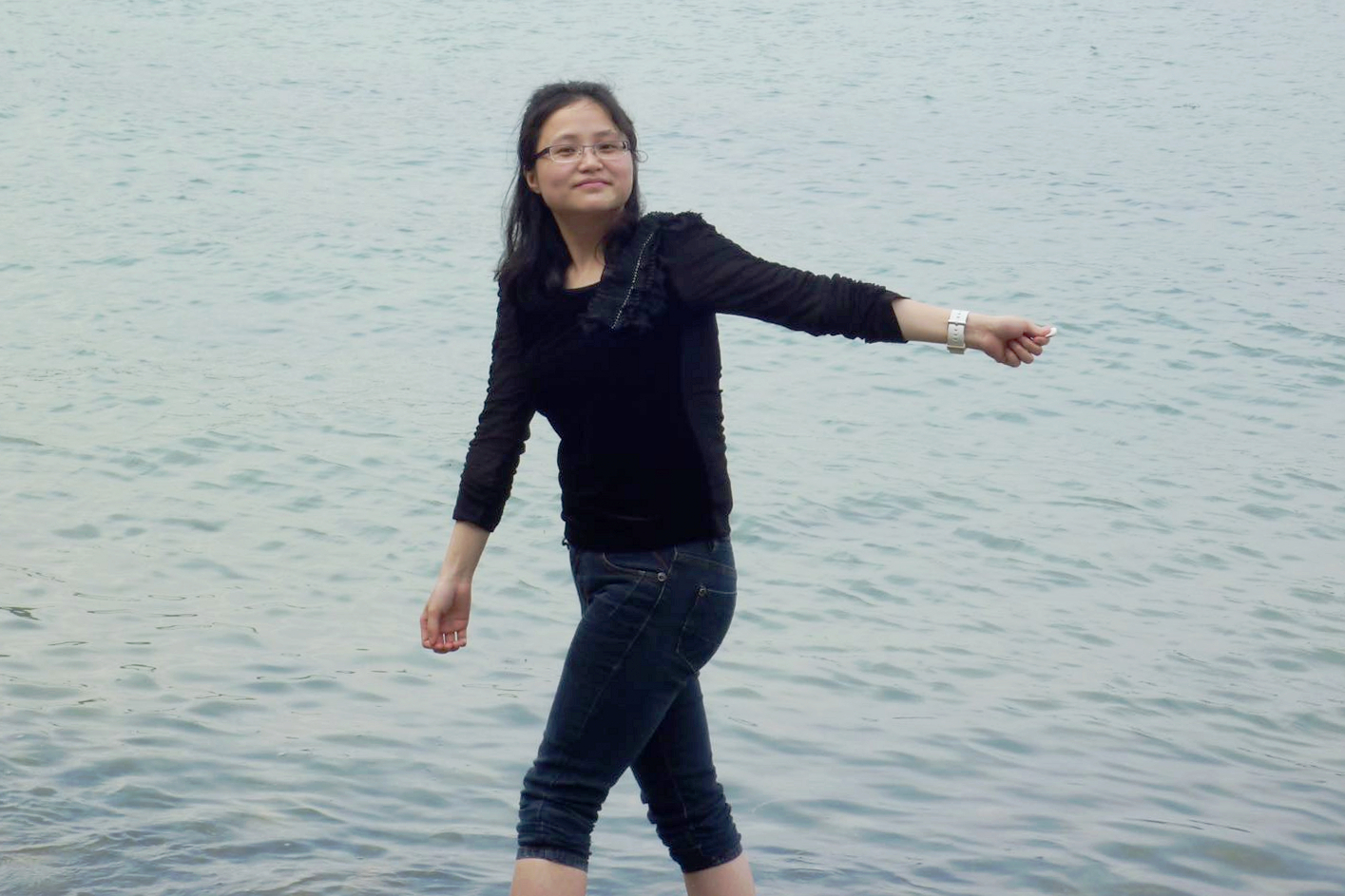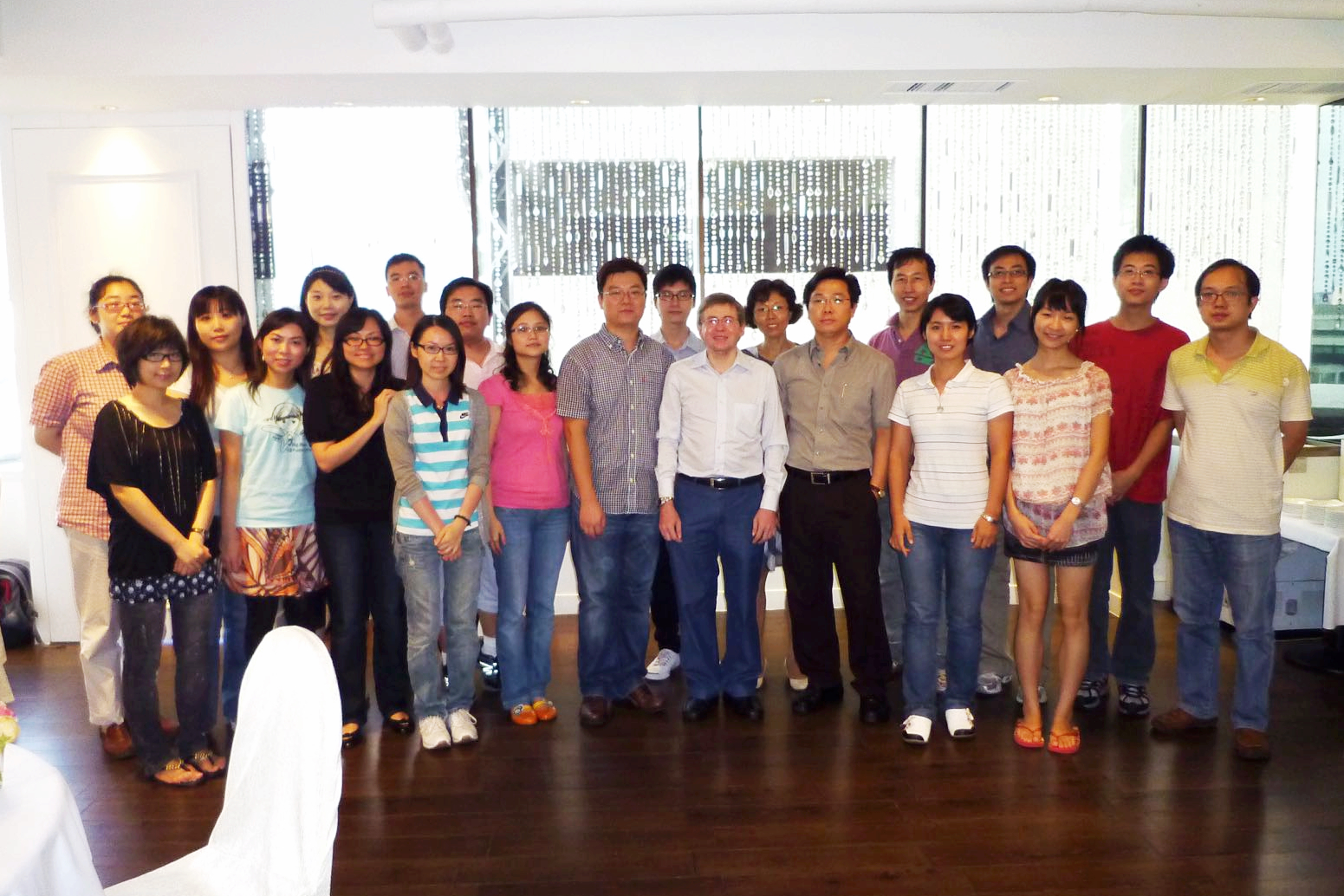In the blink of an eye, it has been two months since the freshmen entered the university, and for me, I have graduated with a Ph.D. for almost nine years. I would like to share some of my learning experiences and feelings.
In the summer of 2009, I went to the University of Hong Kong for a PhD program. Before meeting my supervisor, Prof. David Lee Phillips, for the first time, I prepared a lengthy self-introduction and research pursuit, in the hope of making a good impression on him. When it was time of the appointment, I knocked on David's office door and finished the three or four hundred words of "lines" smoothly. David was very happy, and then blablared with me for half an hour ... However, I did not understand a word. When I returned to the laboratory and told other students about my experience, everyone laughed and told me that the boss has an "rural American English accent", and if you tell the boss that you don't understand, he will slow down. The next day, David came to the laboratory early in the morning. After chatting with us, he took me to see the laser device and spectrometer, and then said: "We have so many equipment. You can begin your research now." I couldn't be happier.

In the next few days, every time David came to the laboratory, he would always discuss their research progress with other students, as well as the postdoctoral researchers in the group, and say only a few words of greetings to me. I always wanted to discuss my ideas with him, but I was always nervous about the English accent and hesitated to speak. Until one Sunday morning, David showed up at the laboratory unexpectedly. Because according to the school rules and his habits, Sunday is a day off, so I am the only one in the laboratory. He saw me and looked surprised, and then I finally had the opportunity to communicate with him about my research topic for the whole morning, and soon I have finalized my idea and started experimenting. Since then, I can fully understand his English accent. I thought that if I wasn't in the lab that Sunday, I might not have been able to start communicating with my supervisor as soon as possible.
For several years, When I sent David the "Cotton-up" letter, he must not have known that there was a Northwest University in China. After I began to work in a university, I didn’t have a instrument platform, so I went to the David's laboratory to do experiments every winter and summer vacation. I didn't have any doctoral students, and David generously asked his postdoc to assist me. Later, after we published some good papers, I assisted David to apply for a short-term exchange and cooperation project of the Shaanxi Province Hundred Talents Program, and he donated all the fund he received to the research funds of the University of Hong Kong. Whenever I encountered difficulties and could not move forward, David always gave me comfort and encouragement. During the COVID lockdown in Xi'an last year, David sent me several emails asking if everything was okay. Once after he came to give a lecture in Xi'an, I took him to visit the Terracotta Warriors and Horses Museum, and along the way he told me a lot of insightful reflections on scientific research. How lucky I am to be David's student.
Experimenting was a big challenge for me. Because my master's major is Polymer Physics and Chemistry, I didn't even know how to turn on the laser device. David told Ms An Huiying and Mr. Li Mingde to instruct me to learn to operate the instrument. Having two different styles, Huiying is vigorous and resolute, and Mingde is meticulous and inclusive. Because of my serious attitude, they were happy to teach me. Huiying said to everyone in the group many times: "Jiani is the only fellow student I have ever instructed." With their help, I quickly learned how to operate the instrument. Two months later, I had all the results.
Mr. Guan Xiangguo of the group, seeing that I was working hard, said that "this student can be taught", so he asked me if I would like to learn to do Gaussian quantitative calculation. So, during the day, I followed Mr. Guan to type various code-like instructions on the computer, and at night I soaked in the Little Wood Worm forum to learn the knowledge of quantitative calculation. Since the calculations are done on Linux, I also learned a lot vi codes. There was also Dr. Ma, a postdoctoral fellow, there to help me at that time, giving me important advice and guidance. With the selfless help of my fellow students, I was finally able to carry out my research project independently. I think it is also because of my humble and studious attitude that impressed them, so that these people who have been studied in famous schools all the way were willing to help me, a person who is not talented.
Later, David got some fund and purchased an ultrafast transient absorption spectrometer. After the training engineers left, we still didn't know how to operate. By that time, Mingde had gone to the UC Berkeley in the United States as s postdoctoral fellow. After discussing with my classmate Su Tao, we decided to learn and use this instrument. Su Tao graduated from Tsinghua University, but like me, he had no knowledge or experience in optics and electronic circuits. So we used the simplest method: each time we adjust the position of an optic device, we record the effect on the spectral quality. It took a lot of effort, but we really learned some techniques.Several times when we finished the adjustment and went downstairs to eat, we found that the restaurant was already closed.

According to the rules of the group, students complete the writing of the thesis by themselves, and they do not send it to the supervisor until they feel it is publishable. I carefully studied the literature, especially the articles published by David’s group, and managed to finish an article according to the logic and analysis of these published articles, like "drawing the tiger with a cat as a model". At that time, the University of Hong Kong offered an elective course to teach English research paper writing for non-native English speakers, and the teacher taught many very practical methods in the class. For example, noting down what you think is a "good sentence" in a research paper, or writing synonyms of a commonly used word, such as display. The training greatly and quickly improved my academic English writing skills. When I begin to mentor graduate students, I also tell them to use this method. After two rounds of revision, the first work of my PhD stage was successfully completed and published in the journal JOC.
When I was in my third year of PhD program, David asked me to supervise two junior PhD students. We worked together, helped each other, and published articles. Many years after we graduated, we still support each other. Although Guan works in the finance, he still gave me guidance when I encountered computational difficulties. Mingde and I help each other in research, and whenever we encounter academic problems, we will discuss and communicate with each other. Su Tao left the Chinese Academy of Sciences to work in the industry, and he would fly to Xi'an on weekends to help me adjust light when I built instrument in my laboratory. Huiying stays in Hong Kong and works in education. One of the junior students I supervised went to Guangzhou University, and the other completed a postdoctoral program at Yale University and joined the Hong Kong University of Science and Technology. I think that the help, support and learning between fellow students are also the most valuable assets and gains for us to engage in scientific research.
I often think of the days, when my classmates and I worked hard and strove for progress, by the Chong Yuet Ming Fountain and under the Lion Rock.